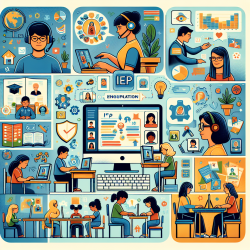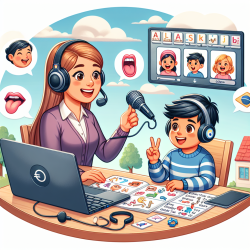The world of education is ever-evolving, and medical education is no exception. One of the significant shifts has been the adoption of problem-based learning (PBL) as a core component of medical curricula. This approach emphasizes student-centered learning through small group discussions and problem-solving exercises. But what influences a student's preference for PBL? Recent research sheds light on the interplay between personality traits, cultural contexts, and student preferences towards PBL.
The Role of Personality Traits
The study "Medical students' preferences for problem-based learning in relation to culture and personality: a multicultural study" highlights how personality traits significantly impact students' preferences for PBL. The research utilized the NEO Five-Factor Inventory to assess traits such as Extraversion, Openness to Experience, Conscientiousness, and Neuroticism. It was found that students who scored high on Extraversion and Openness were more likely to have positive preferences towards PBL. These traits are associated with sociability and curiosity, which align well with the collaborative nature of PBL.
Interestingly, Conscientiousness also correlated with positive PBL preferences, suggesting that students who value orderliness and diligence appreciate the structured yet flexible nature of PBL. On the other hand, Neuroticism showed a dual relationship; while some students high in this trait found PBL supportive, others found it unnerving due to its interactive demands.
Cultural Influences on Learning Preferences
Cultural context plays a substantial role in shaping students' attitudes towards PBL. The study compared medical students from Nepal, Norway, and North Dakota, revealing that cultural norms and educational backgrounds influence how students perceive PBL. For instance, students from more hierarchical educational systems may initially struggle with the self-directed nature of PBL but can benefit from its collaborative aspects over time.
The research also noted that female students and those living in symmetrical relationships (e.g., with partners or fellow students) exhibited fewer negative preferences towards PBL. This suggests that social dynamics outside the classroom can influence educational experiences within it.
Implications for Practitioners
For practitioners looking to improve their skills or enhance their teaching methods, understanding these insights can be invaluable. Here are some practical steps:
- Embrace Diversity: Recognize that students come with varied personality traits and cultural backgrounds. Tailor your approach to accommodate these differences.
- Create Supportive Environments: Foster an inclusive classroom atmosphere where all personality types feel comfortable engaging in PBL activities.
- Encourage Self-Reflection: Promote self-reflection and peer feedback as part of the learning process to help students develop social skills alongside academic knowledge.
The Need for Further Research
This study opens the door for further exploration into how personality and culture affect learning preferences across different educational settings. Practitioners are encouraged to delve deeper into this area to refine their teaching strategies further and enhance student satisfaction.
The findings underscore the importance of considering both individual differences and cultural contexts when designing educational programs. By doing so, educators can create more effective learning environments that cater to diverse student needs.
If you're interested in exploring this topic further or implementing these insights into your practice, consider conducting your own research or collaborating with colleagues from different cultural backgrounds. This could provide additional perspectives and enhance your understanding of how best to support your students.










